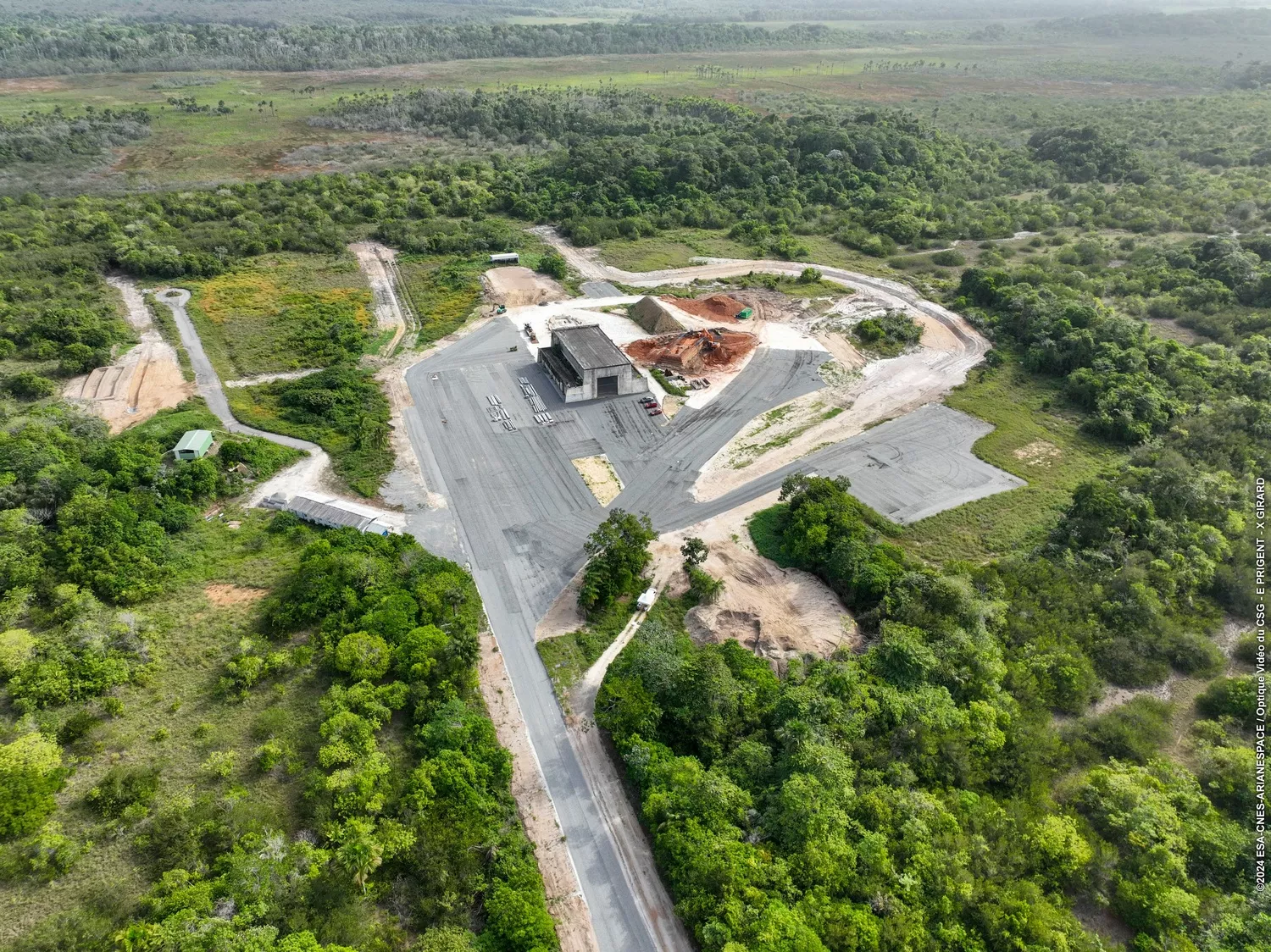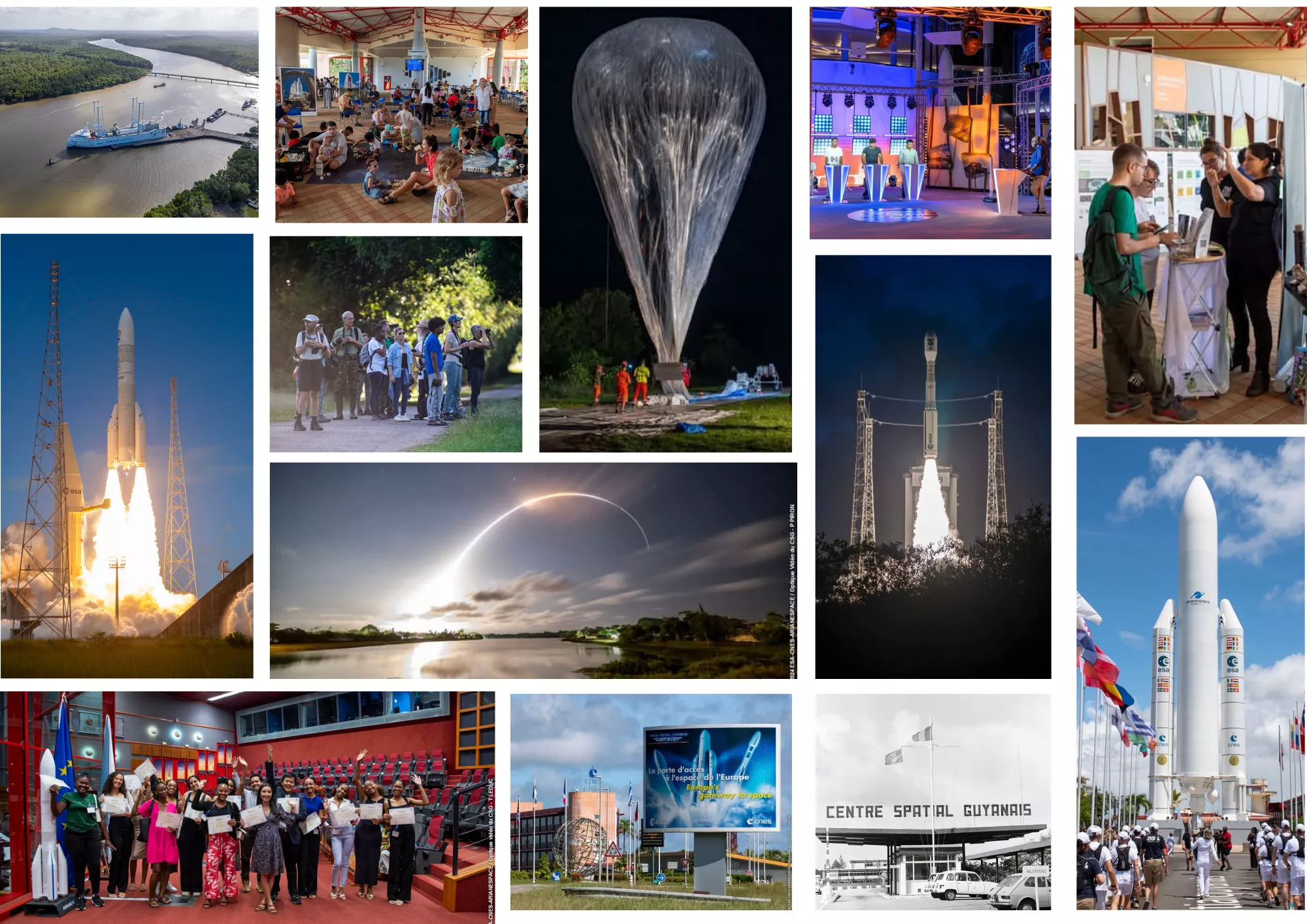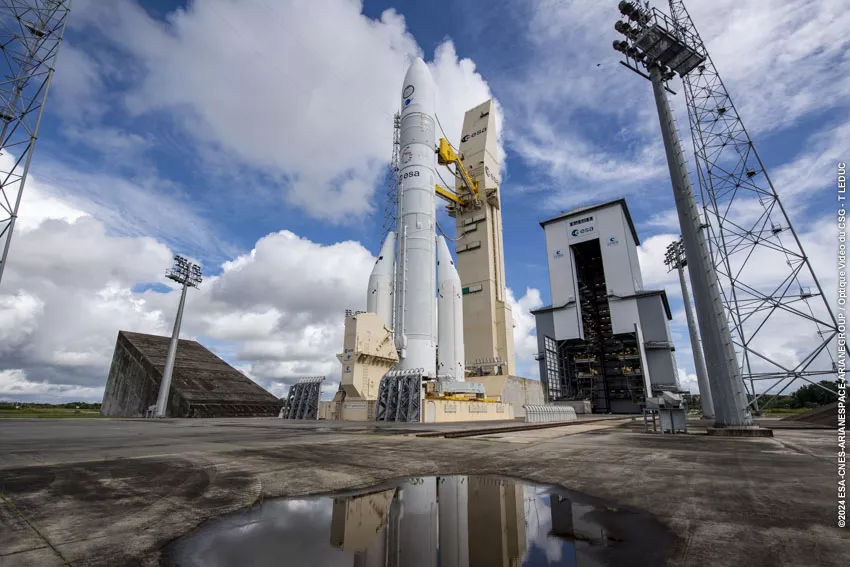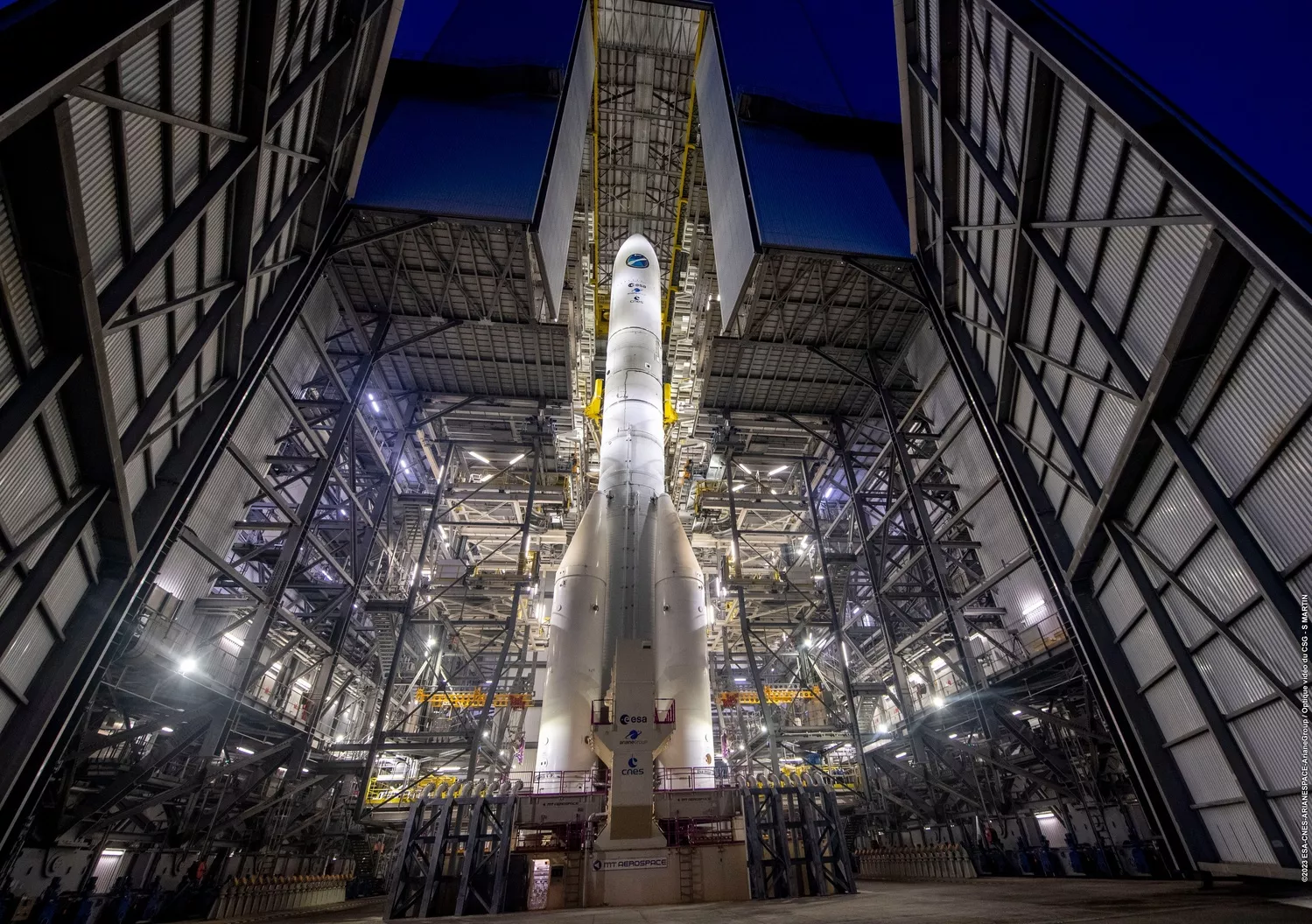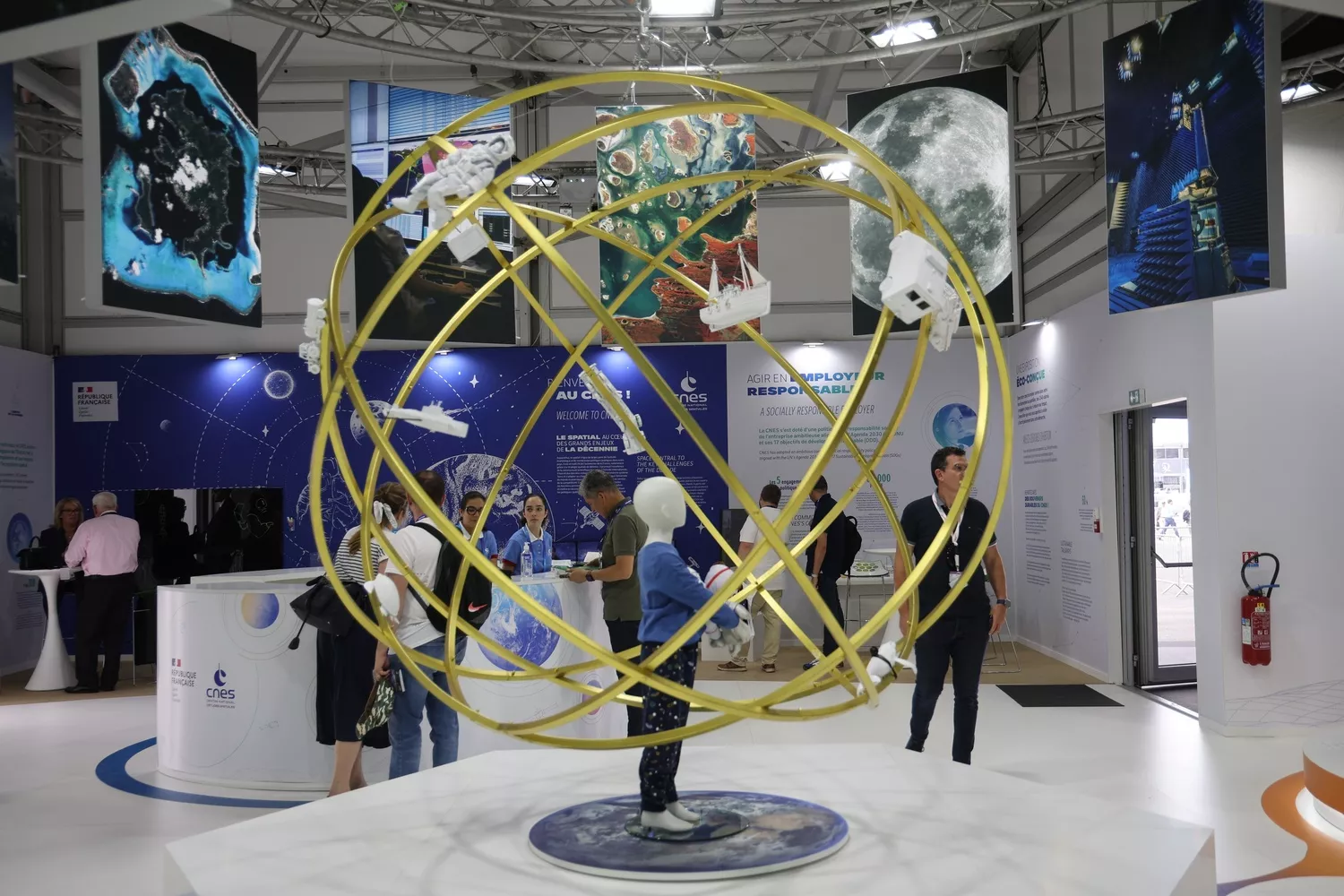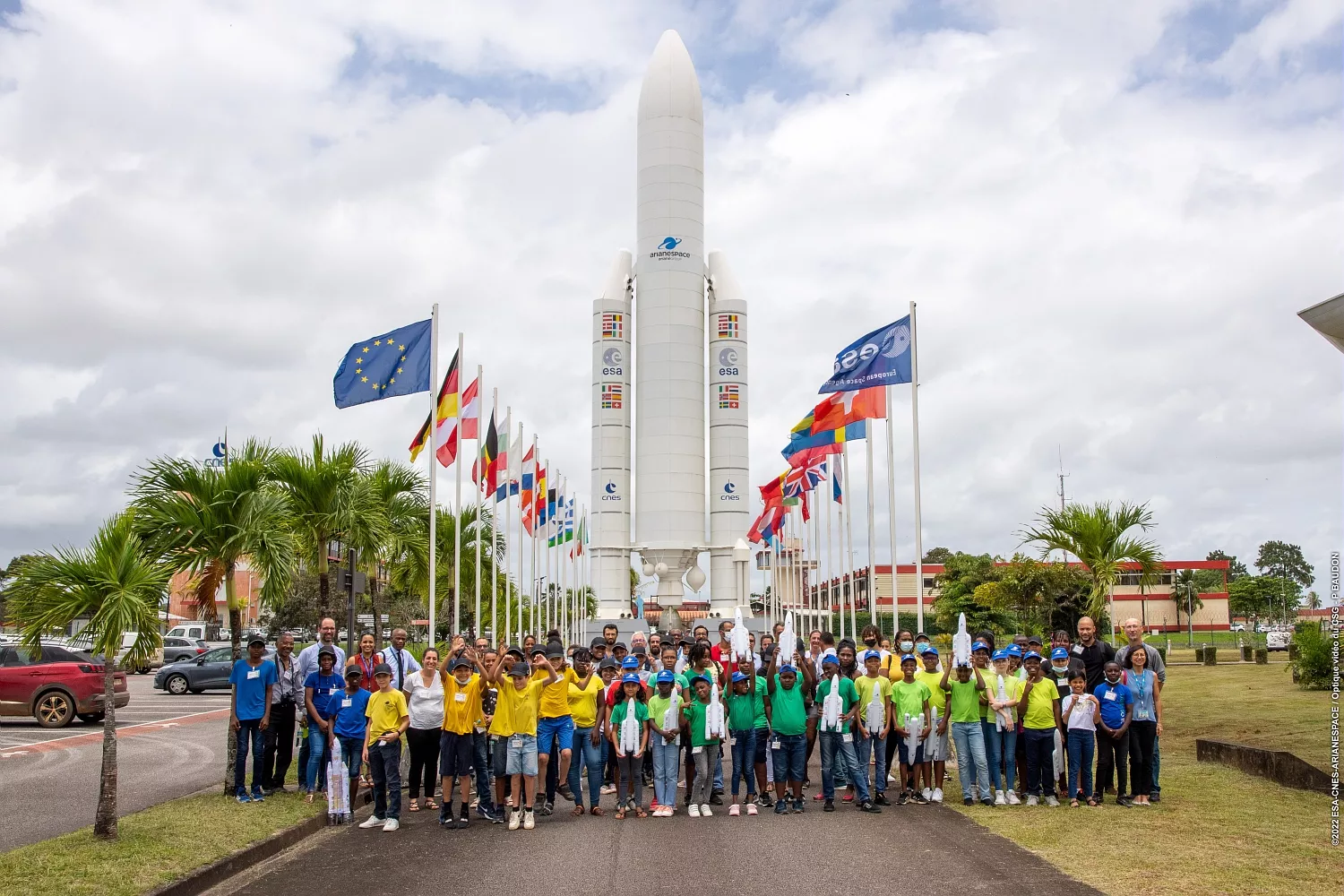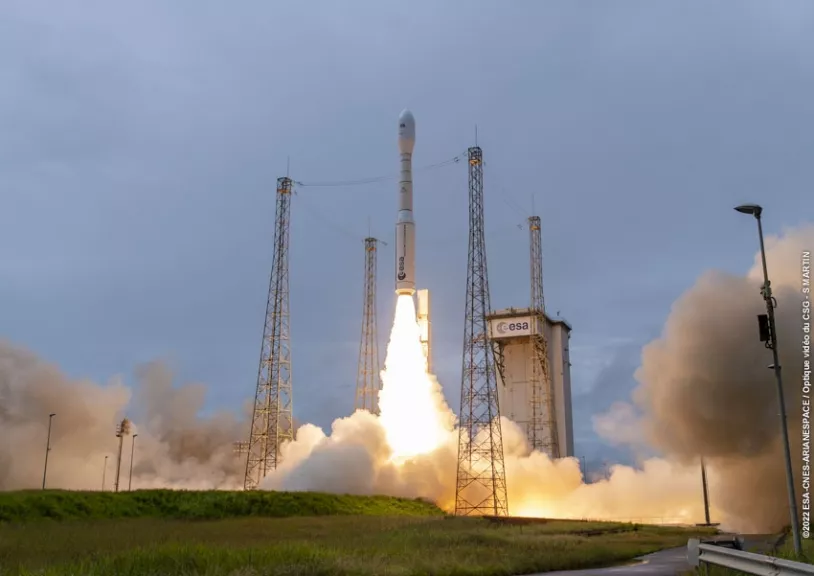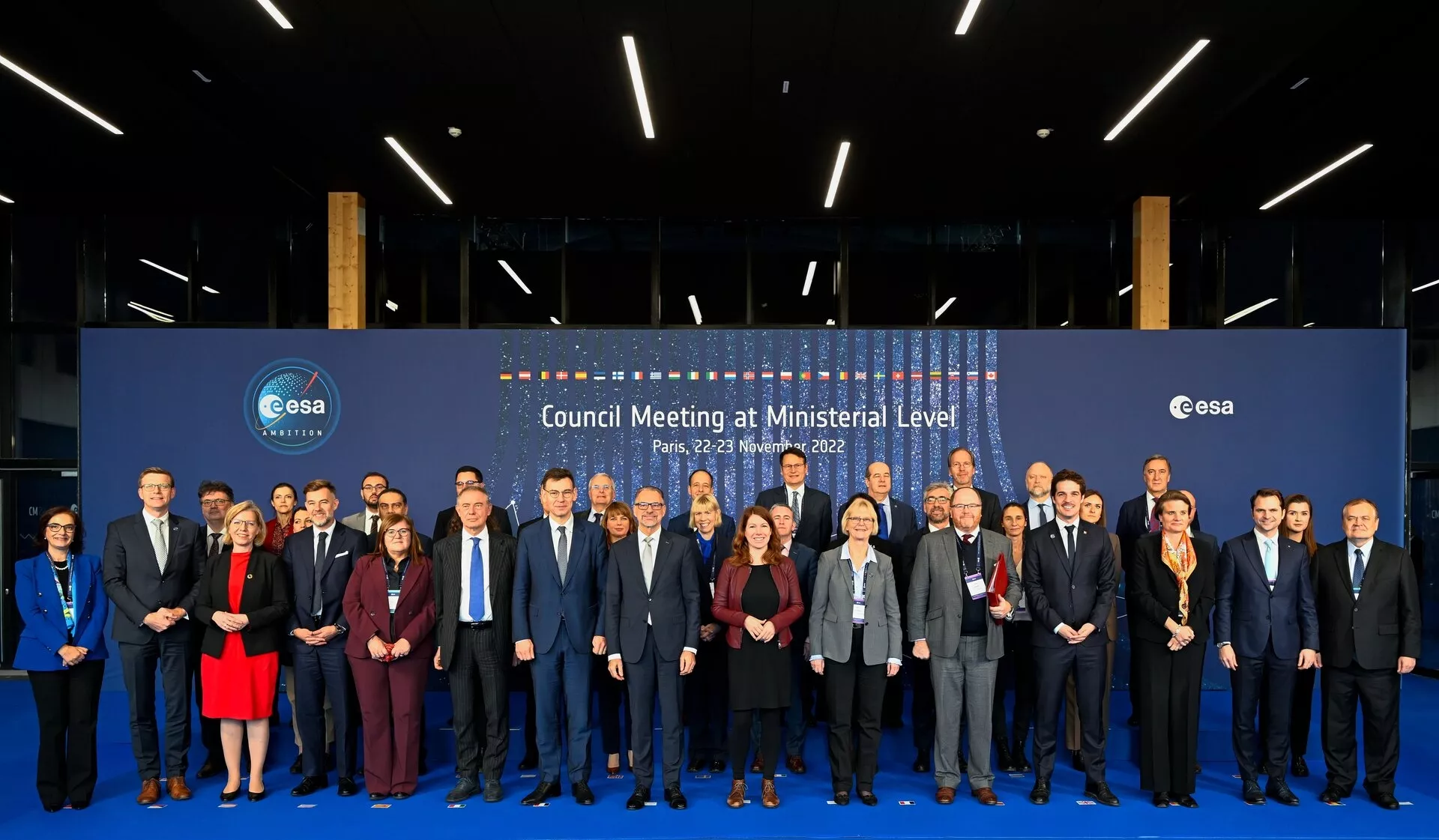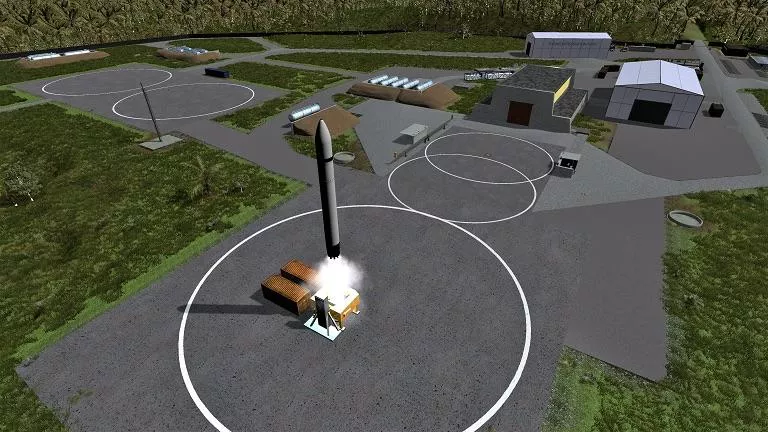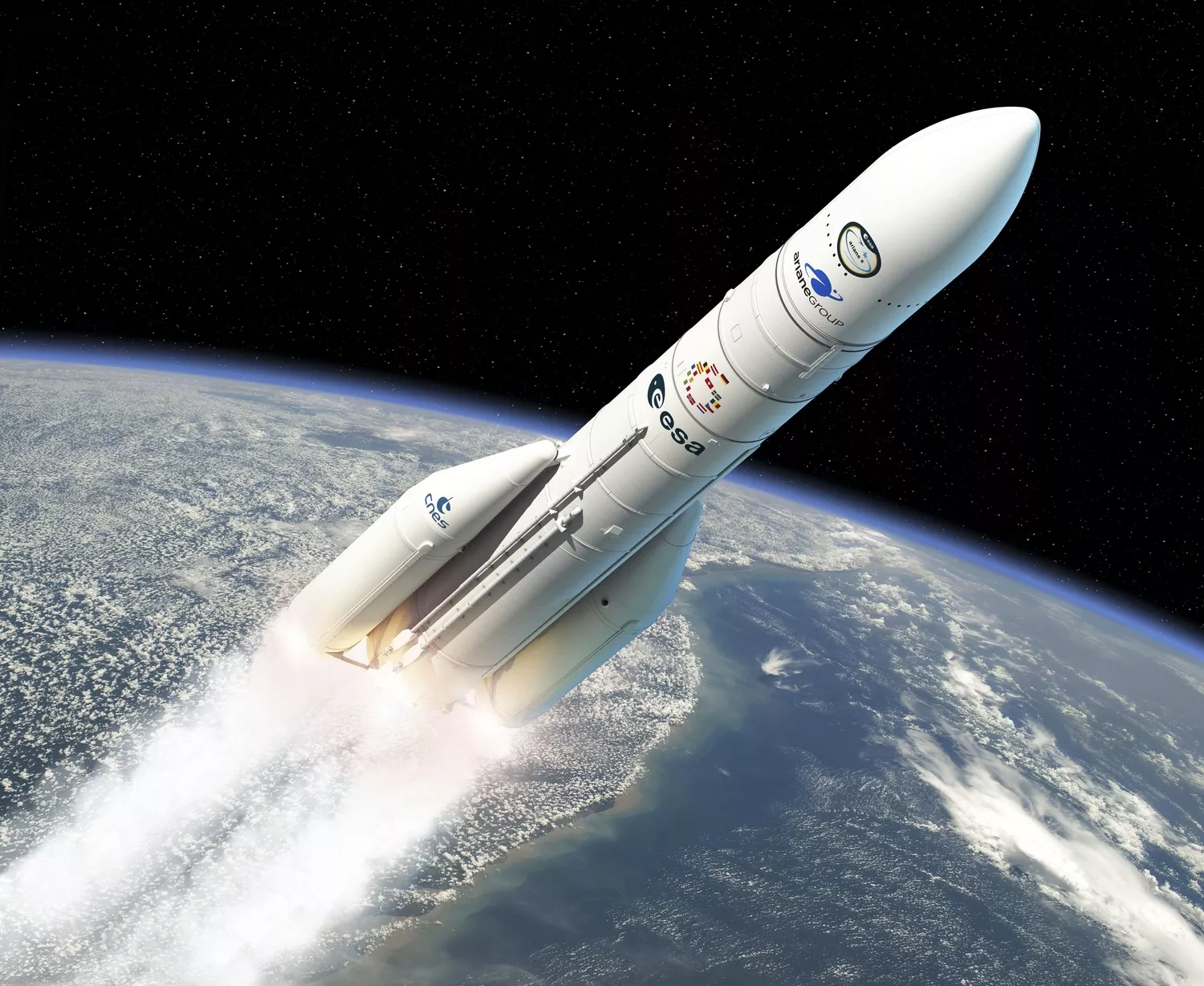Space Summit: outcomes for Europe’s spaceport
On 6 and 7 November, the Space Summit was held in Seville, Spain, attended by 22 ESA Member States, who came to a number of agreements on the future of Europe in space.
An overview of the agreements relating to Europe’s spaceport.
At the Space Summit in Seville, the 22 Member States of the European Space Agency (ESA) took decisions that will shape the future of Europe in space in three key areas: climate, exploration and launchers.
- Climate: the member States renewed their commitment to making Earth observation for climate a priority for future investment.
- Exploration: to maintain its position on the world stage, Europe has also set out its ambitions in the field of exploration. ESA will launch a call for tenders from the industry to provide a cargo transport service to the ISS by 2028. The aim is to promote the emergence of industrial leaders to build the future of space exploration.
- Launchers: Europe concluded a major agreement to ensure the future of the Ariane 6 and Vega-C launch vehicles, which are essential for its autonomous access to space. The member States also committed to encouraging fair competition among private European stakeholders to develop the most competitive launchers in the years to come. Lastly, AVIO, the Italian manufacturer of Vega-C, will market its own flights, which until now have been operated by Arianespace.
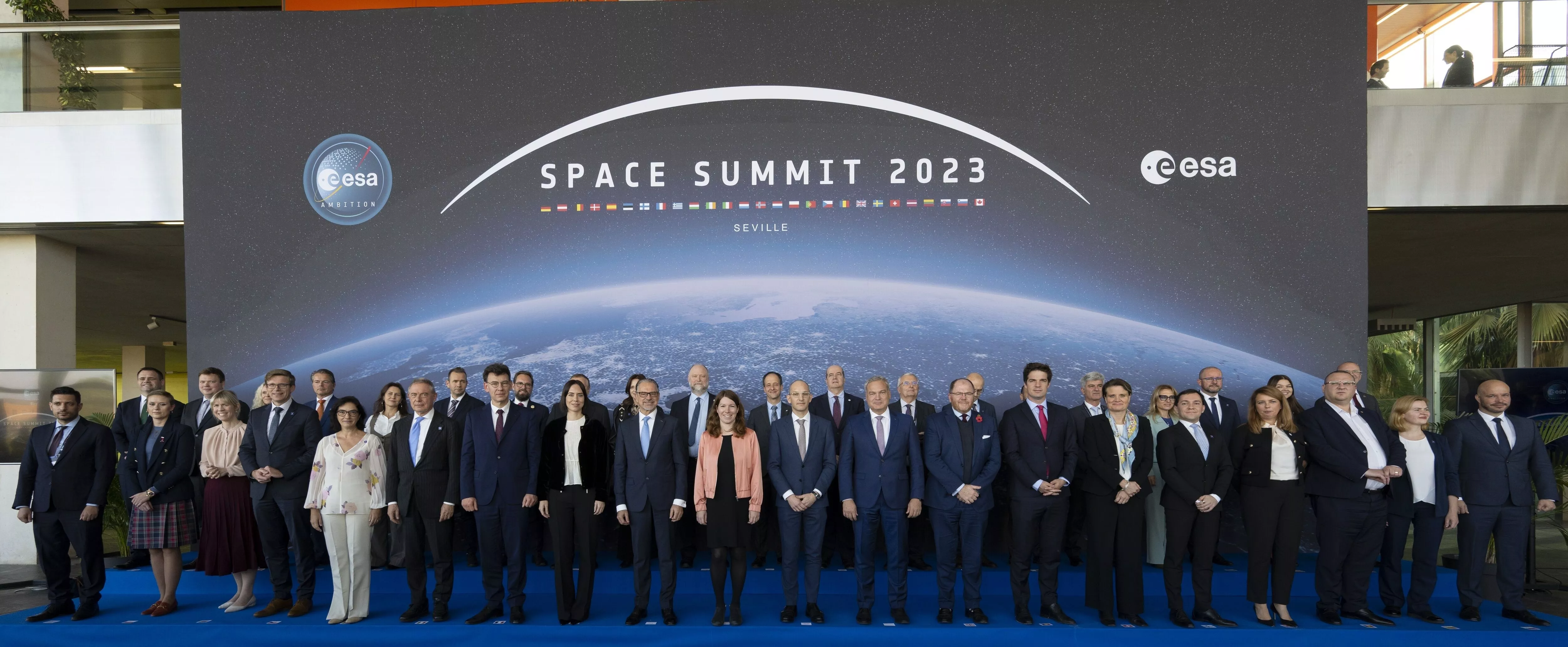
What decisions will have an impact on Europe’s spaceport?
Climate: greening of energy at the spaceport
Afin d’opérer une transition écologique substantielle dans le domaine spatial, le CNES s’est engagé notamment en faveur du verdissement de l’approvisionnement énergétique du Centre spatial guyanais et s’est fixé un objectif majeur de zéro émission nette d’ici 2045 pour l’ensemble de l’agence. En tant que bras armé de l’État dans le domaine spatial, le CNES joue d’ailleurs un rôle majeur pour amener la filière industrielle française à la transition écologique, dont la décarbonation constitue une première brique indispensable.
In order to achieve a substantial ecological transition in the space sector, the French space agency is committed to greening the energy supply at Europe’s spaceport and has set itself a major objective of net-zero emissions by 2045 for the entire agency. As the operational arm of the government in the space sector, CNES plays a key role in driving the French space industry towards ecological transition, in which decarbonisation is an essential first step.
Launchers: Ariane 6, Vega-C and the private space stakeholders of tomorrow
A major agreement has been signed to secure the future of the Ariane 6 and Vega-C launch vehicles, which are essential for Europe’s autonomous access to space.
This agreement provides for public funding of up to €340 million per year for Ariane 6, from the 16th to the 42nd flight, i.e. from 2026 to 2030. At the same time, the industry, and ArianeGroup in particular, has undertaken to reduce its costs. As for Vega-C, the subsidy, if necessary, could be as much as €21 million a year from the 26th to the 42nd flight.
In line with its commitment to encourage fair competition among European private stakeholders, ESA will launch a challenge to select several private stakeholders to receive European funding of up to €150 million each for a contract to purchase services for European missions on board a medium-lift launcher.
Lastly, AVIO, the Italian manufacturer of Vega-C, will market its own flights, which until now have been operated by Arianespace (“VEXIT”). For Europe’s spaceport, this means that AVIO will become a new launch operator in addition to Arianespace.
Launch pads
The Soyuz launch complex will be handed back to France for two launchers: one selected by France and one by ESA.
AVIO will temporarily operate ELA 3 (the former Ariane 5 launch pad) for its future Vega-E launch vehicle, until ELA 2’s upgrade is completed.
Our European space story is only just beginning! As Europeans, we have decided to provide new funding for Ariane 6. And it is together that we will develop the rockets of tomorrow and go further in space exploration.
Emmanuel Macron, President of the French Republic
On the same section
-
Public consultation for mini-launchers
27/02/2025The French Space Agency’s commitments in French Guiana : review and outlook
29/01/2025Europe’s Spaceport: Recap of 2024 and outlook for 2025
28/01/20252024 at Europe’s spaceport
15/01/2024Round table on the modernisation of Europe’s spaceport
22/06/2023CNES's actions in French Guiana: review and outlook
24/02/2023Review of 2022 and outlook for 2023
18/01/2023[CMIN 2022] Key announcements of the ESA ministerial meeting
28/11/2022Mini- and micro-launchers: winning operators announced
25/07/2022
